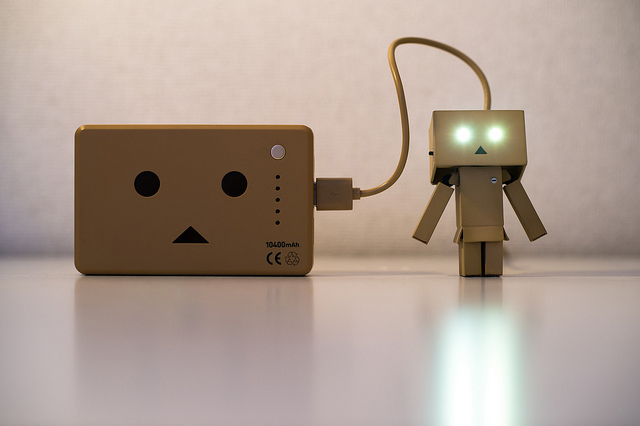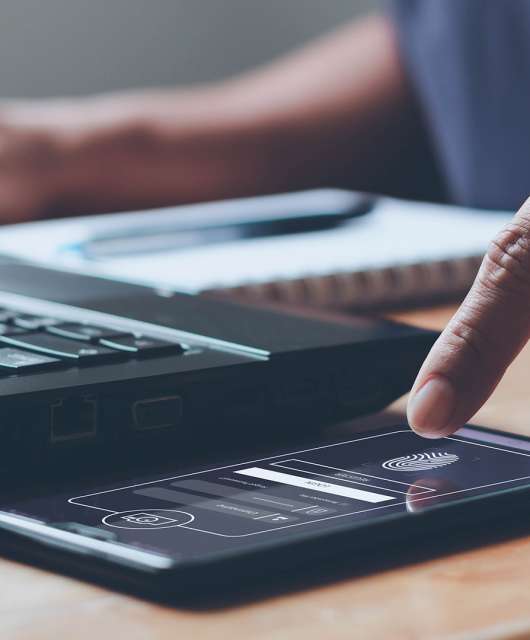Yes, iPhones get viruses, but it’s very rare. A virus on a phone, like an iPhone, is a computer program targeting cellular devices. These viruses are linked to threats like the release of personal information, unauthorized use of credit cards, location tracking, spam and more.
An iPhone is at risk for viruses if the phone is jailbroken or not recently updated. Those who jailbreak their phones want to have unrestricted access to their phone’s functions and systems. However, this opens the door for viruses to come rushing in.
While getting a virus on an iPhone is hardly ever seen, there is another way it can happen. Apple devices update multiple times a year to keep the device safe from new viruses and bugs. Skipping an update can leave you and your device exposed to new viruses.
Why Do iPhones Rarely Get Viruses?
The majority of iPhone users don’t have to worry about viruses due to Apple’s protected and secure operating system, iOS. If you’ve pondered jailbreaking your iPhone, think again. Once the phone is jailbroken, you lose the protection of the operating system.
Viruses look for and override the device’s operating system. Once inside the system, the virus has access to private data and the controls of your device. Apple’s OS, engineered to combat viruses and keep them out of your personal device, is your phone’s first line of defense — and a strong one at that.
Since viruses like to spread through app interactions, Apple’s operating system runs applications in its own virtual spaces. Another way Apple makes it difficult for viruses to attack iPhones is by sending out routine updates of its operating system. When an operating system is up to date, a virus has a harder time infecting the device.
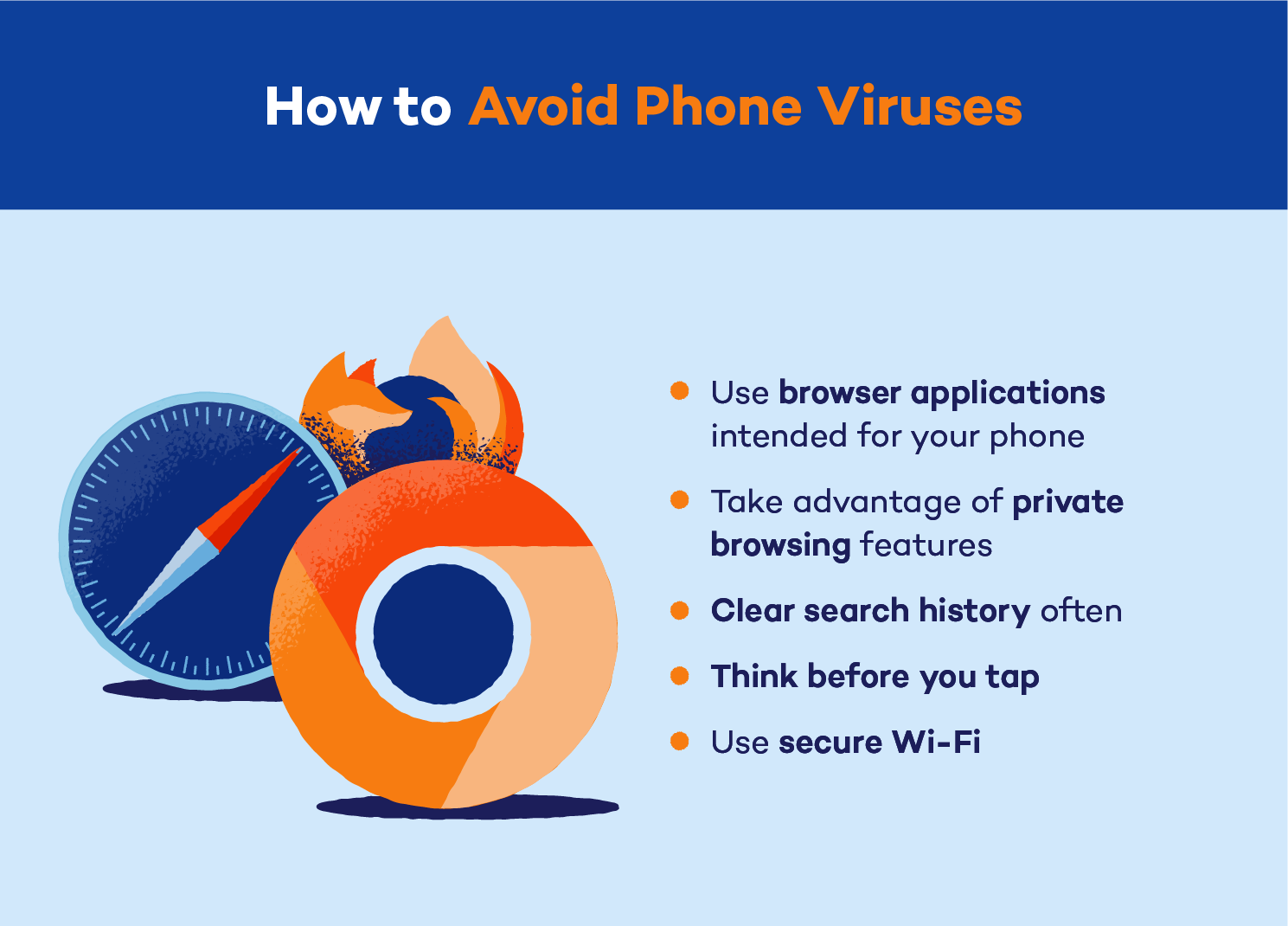
While possible, it’s extremely difficult for an iPhone to get a virus from a website. If you want to use a website on your iPhone, you’ll be directed to Apple’s App Store. You can then download apps like Google Chrome, Yahoo or Safari as search engines.
All applications, including browsers, go through security checks before Apple uploads them to the App Store. These security checks scan the app’s code and test its functions for existing and potential viruses and malware. If an app’s code is found to have or have room for a virus, it will not be approved for the App Store and can’t be downloaded onto your iPhone.
Safari
Safari, Apple’s built-in browser, provides users with additional protection against viruses, malware and cyberattacks. Safari’s privacy report details its automatic measures like Intelligent Tracking Prevention and fingerprinting. It also explains its minimization of data tracking by Apple and shared third parties.
All of these features work together to offer a secure and private browsing experience for Safari users.
Can iPhones Get Viruses From Email?
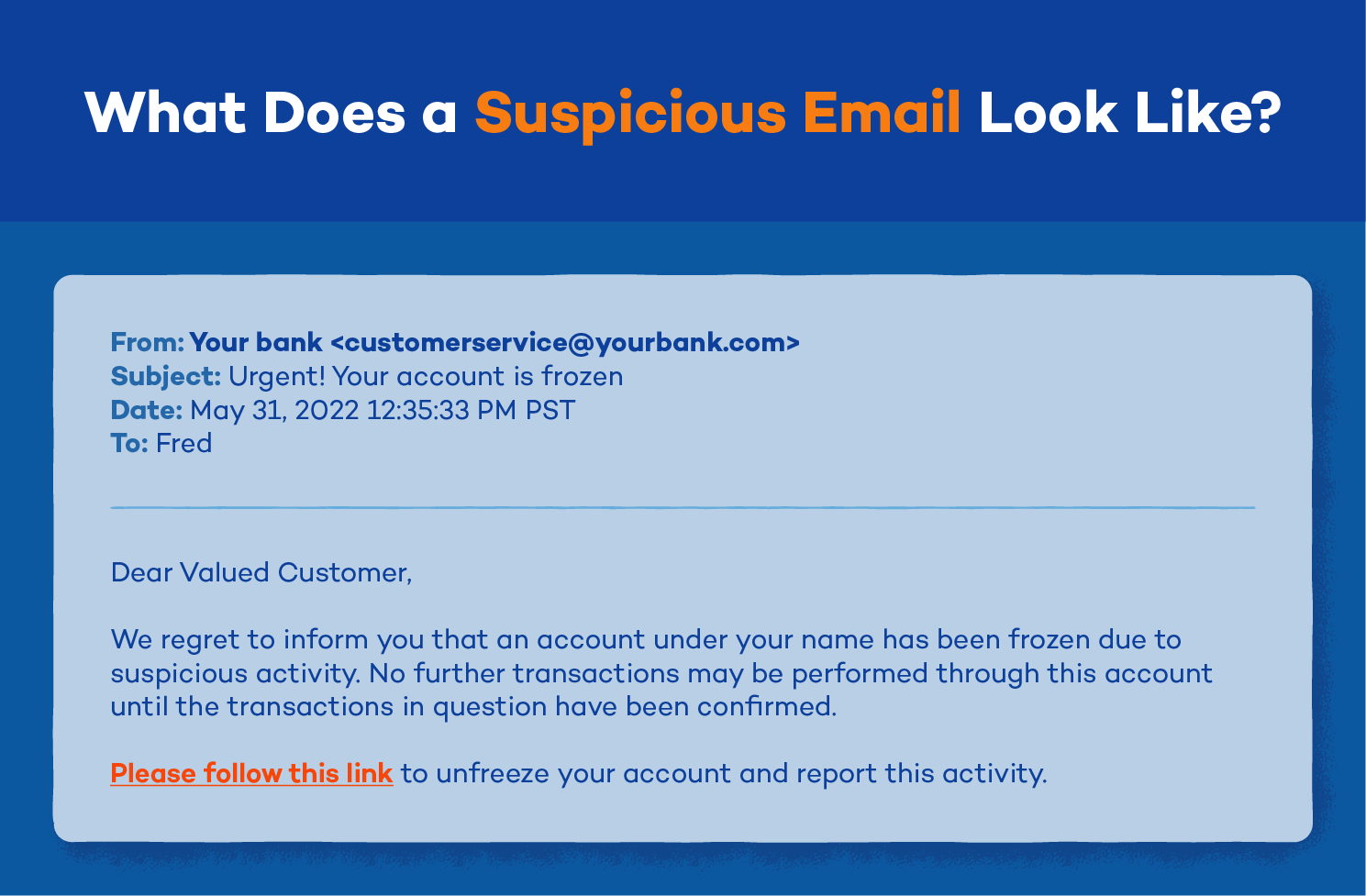
In short, no, an iPhone can’t get a virus from an email itself. If your email exists on your phone as its own application, it has gone through Apple’s security checks before being placed onto the App Store.
Spam mail is the most common way a virus program attempts to gain control of your phone. However, email systems will often flag spam mail and emails with risky links automatically. While the spam and potentially risky emails are visible in your inbox, the virus can’t activate unless you follow through with the steps provided in the email or attached link.
Your phone’s OS and application’s security checks do most of the work, but it’s still important to delete and ignore any suspicious emails.
Does My iPhone Have Viruses?
If you have a suspicion that your iPhone has a virus, there are common signs to look for. A virus causes your phone to function improperly. To protect your data and device before it’s too far gone, you should understand what functions are out of the ordinary. They include:
- Overheating
- Excess data use
- Pop-ups outside of an application/browser
- Apps you didn’t download appearing on your phone
- Apps repeatedly crashing
- Constant low battery
- iPhone running slow
Are Virus Warnings on iPhones Real?
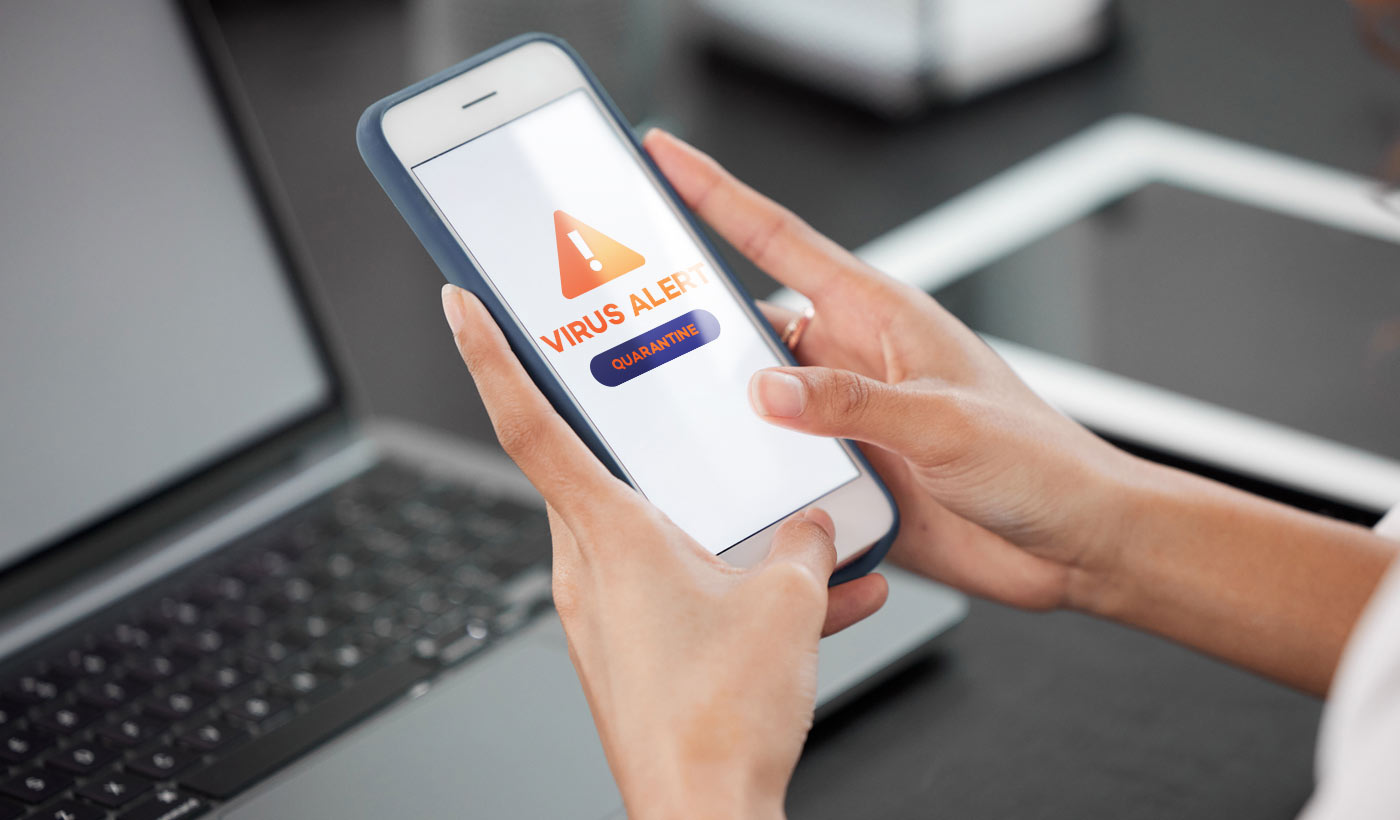
No, virus warnings on iPhones are not real. Virus warnings are pop-up notifications claiming to warn you that a virus is on your device or about to be on your device. These pop-ups are scams, typically including a link that will attempt to infect your phone if you click it. It’s important to remember that iPhones block scams, viruses and bugs automatically without notifying the user.
Does Apple Have a Virus Scan?
Yes, Apple has an antivirus software called XProtect for Macs, but not for iPhones. While this may seem counterintuitive, the answer is quite simple: iPhones have a highly secure operating system that can prevent virus infection. However, additional protection outside of Apple-made products, like PandaDome, may protect your phone, computer and personal information.
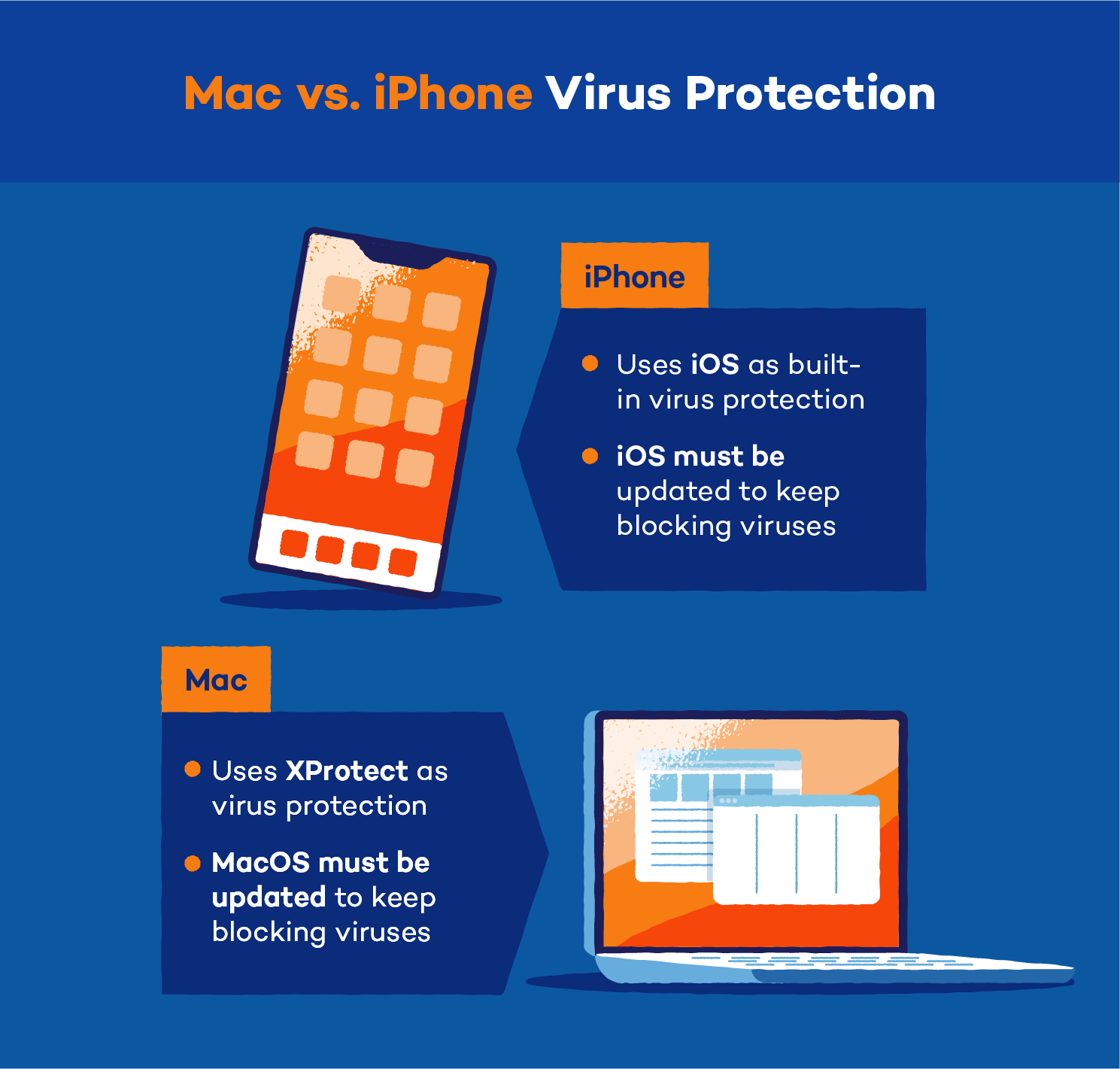
Most third-party antivirus apps scanning your entire phone don’t work on iPhones because Apple has blocked apps from taking another app’s data. Therefore, antivirus apps can’t scan all of your phone’s data to protect you from possible threats.
However, third-party antivirus apps designed to scan data coming in from places like public Wi-Fi instead of your phone’s apps work great to scan for viruses specific to that location. Additional resources like PandaDome are available in the App Store, offering a free virtual private network, parental control and anti-theft tools.
How To Remove Viruses From iPhone
If your iPhone is infected by a virus, you can get rid of that virus by removing its place of origin. For instance, you can remove a virus coming from an unfamiliar app by deleting the app and restarting the phone. It can be tricky to know where a virus is coming from. If that’s the case, there are steps you can take to check off the most likely boxes:
- Delete unfamiliar apps
- Clear browser/search history
- Restart the iPhone
- Reset the iPhone to its factory settings if the virus has been on the phone too long
How Can I Protect My iPhone?
You can protect your iPhone by using it as it’s intended. Misusing an iPhone puts you at risk for theft of personal information and data. Following the user guidelines that appear on your home screen as you set up your new iPhone is the best way to protect your device and data. Other best practices include:
- Download apps from the App Store only
- Update iOS
- Keep apps updated
- Don’t jailbreak your iPhone
- Avoid virus warnings
- Ignore suspicious emails
- Install security apps
Apple created and continues to create devices like iPhones to give users a safe product. However, misusing a device places your personal information at risk. While iPhones are one of the safest cellular devices on the market, they can still get viruses. Apple’s OS works hard to keep viruses out — you can, too, by taking care of your device and installing security apps for extra protection.


